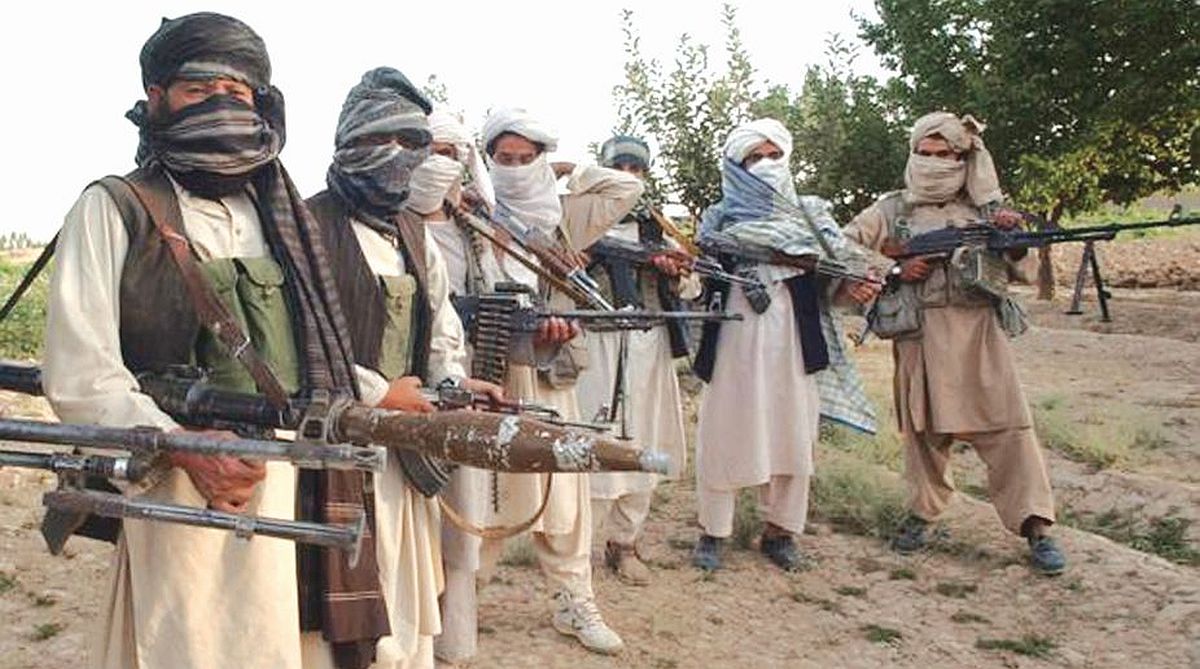Trump tariffs on Canada, Mexico and China begin Saturday: White House
The White House confirmed on Friday that President Donald Trump will be slapping aggressive tariffs this weekend on major US trading partners including Canada, China and Mexico.
Earlier, in a strong message to Pakistan, US Defence Secretary Jim Mattis said that it was time for everyone to support the efforts of the UN, Prime Minister Narendra Modi and Afghanistan in maintaining peace.

Taliban (File Photo)
Days after US President Donald Trump sought Pakistan Prime Minister Imran Khan’s help in the Afghan peace process, a top American commander has told lawmakers that Islamabad’s policy seems to be unchanged and it continues to use the Taliban as a hedge against India.
“Pakistan is an essential element in long-term stability in Afghanistan,” Marine Corps Lt Gen Kenneth McKenzie Jr told members of the Senate Armed Services Committee Tuesday during his confirmation hearing for commander of the US Central Command (CENTCOM).
Advertisement
Pakistan could play a key role in facilitating talks between the Taliban and government of Afghanistan, he said, adding, “I would welcome that development. At this time, however, Pakistan does not appear to be using the full extent of its influence to encourage the Taliban to come to the table.”
Advertisement
“We continue to see the Taliban being utilised as a hedge against India rather than as part of a stable, reconciled Afghanistan,” McKenzie told the lawmakers during his confirmation hearing.
His answers to the Senate Armed Services Committee in response to a set of written questions come a day after it became public that Trump has written a letter to Imran Khan, seeking his help in the Afghan peace process.
“President Trump sent a letter to Prime Minister Khan, requesting Pakistan’s full support to the US-led Afghan peace process and Special Representative for Afghanistan Reconciliation Ambassador Zalmay Khalilzad’s upcoming trip to the region,” a spokesperson of the National Security Council, White House, told PTI.
“In the letter, the President recognises that Pakistan has the ability to deny the Taliban sanctuary on its territory,” the spokesperson said.
“The letter also makes it clear that Pakistan’s assistance with the Afghan peace process is fundamental to building an enduring US-Pakistan partnership,” the spokesperson said.
McKenzie told lawmakers that he did not see much of a change in Pakistan’s behaviour towards Afghanistan or its stand against terrorist groups.
Despite Pakistan’s positive rhetoric in support of the South Asia Strategy, violent extremist organisations or VEOs operate along its border with Afghanistan, he said.
While Pakistan has conducted some operations against VEOs in the country, they must continue to expand these operations and remain aggressively engaged, McKenzie said.
“Taking concrete steps that deny VEO safe havens in Pakistan, as well as VEO freedom of movement from Pakistan to Afghanistan, remains an important ask that Pakistan needs to fulfil. Pakistan must leverage their influence over the Taliban leadership to help compel them to come to the table for reconciliation negotiations,” he added.
McKenzie said the US CENTCOM would continue to support the State Department as it works towards a diplomatic solution to the conflict in Afghanistan which includes ensuring that Islamabad’s equities are acknowledged in any future agreement.
Pakistan’s action or inaction, as it relates to stability in Afghanistan, has often led to US’s frustration, he said, adding that stability in the South Asia region remains the most important mutual strategic interest for both the US and Pakistan.
“We must continue to engage with the Pakistani leadership to realise how we can achieve this mutual interest,” McKenzie said.
Earlier on Monday, in a strong message to Pakistan, US Defence Secretary Jim Mattis said that it was time for everyone to support the efforts of the UN, Prime Minister Narendra Modi and Afghanistan in maintaining peace.
“It’s time for everyone to get on board, support the United Nations; support Prime Minister Modi’s, (Afghan) President (Ashraf) Ghani and all those who are trying to maintain peace and make for a better world here,” Jim Mattis said.
Mattis was responding to a question from reporters about the letter written by US President Donald Trump to Pakistan Prime Minister Imran Khan, seeking his support in the peace process in Afghanistan. In his letter Donald Trump has made it clear that Pakistan’s full support in this regard “is fundamental” to building an enduring US-Pakistan partnership.
(With PTI inputs)
Advertisement